In the complex tapestry of childhood memories regarding the holidays, joy and trauma often intertwine. This creates a mosaic of experiences, intrusive memories, and timelines that are a little off.
This resilient story delves into the realms of festive joy, familial challenges, and the profound impact of trauma on memory.
This personal recollection of Christmases past is a story of resilience and might make you sad. However, we will also examine the science of how psychological trauma shapes your life and how creating memories of joy can move you toward a brighter future.

Picture-Perfect Childhood Memories From the Holidays
My childhood Christmases look picture-perfect when you flip through the albums. Yet my childhood memories from Christmas are a little less sparkly. I grew up with my grandparents after my mom abandoned us there.
She rarely surfaced on Christmas Day, and I have very few happy memories of her at all. She could not put aside her drug habit and dangerous lifestyle for Christmas day. We always had something under the tree “from her” and an excuse for why she wasn’t there.
All I ever really asked for during these early Christmases was a pony and my mother.
The absence of my mother couldn’t be filled with what was in our stockings and the positive memories my grandma tried to create. My negative emotions while waiting for her to appear always overshadowed the brightness of the day.
By the time I was in 8th grade, my mother was in prison but was released in time for Christmas. My grandparents hid her under a sheet in the living room. I thought it was a horse because I saw the sheet move. I remember simultaneously feeling disappointment and joy.
Trauma is tricky; my timeline with long-term memory is not always right. According to the author of The Body Keeps The Score, Dr. Bessel van der Kolk:
“The imprints of traumatic experiences are organized not as coherent, logical narratives but in fragmented sensory and emotional traces: images, sounds, and physical sensations.”
Certain memories are fuzzy. Scientifically, traumatic events disrupt normal memory encoding, leading to intrusive, vivid memories that are emotionally charged and often incomplete.

The Ghost of Christmases Past
I recall moments of happiness from the Christmases before that one with my mom. However, my grandma’s own traumas had important implications for how she managed holiday stress. She meticulously placed our gifts under the tree (which only she decorated). My sister and I tore open our perfectly wrapped presents.
The tree sat in the pristine second living room, complete with vacuum lines on the light carpet. She barred us from the room during the other 364 days of the year. She punished us if she found footprints on the carpet.
This particular Christmas, however, ended in a fight between my grandmother and my mother. It was also the time (I think) that she explained that she would enter the witness protection program. We couldn’t go with her — yet another heartbreaking, perfect Christmas.
Christmas Visitors From Another Country
A year later, my grandma had all her family coming from Belgium. It had been years since she’d seen them. We scrubbed the immaculate house to prepare for them. My grandma’s anxiety manifested itself the way it always did in anger and dissatisfaction.
Eight people showed up, none of whom spoke English, and only my grandmother spoke French. Two of these people were teenage girls, close in age to my sister and me. One day, we were playing in the pool, and the girls kept shooing us away, saying, “Laisse-moi tranquille!”
I didn’t know this phrase, so I asked my grandma. She told me, “It means leave me alone.” That Christmas Day, the building tension between us four girls blew like the lid of a pressure cooker. I forget what offense started it, but I went looking for my grandma.
She yelled about how I was ruining their vacation. She ranted about my lack of gratitude for things like a Disney trip during the holidays. I remember crying and saying something about how mean they were being. I don’t recall the exchanged words, but something I said hit a nerve. She hit me repeatedly, slapping me so hard I fell into the corner of the dresser, cutting my eye.
Then, she stormed away and told me to stay in my room until it was time to open presents. Later, I smiled through the physical and emotional pain for the camera. I expressed gratitude for all the gifts I received. I thought it would be the worst Christmas I’d live through.
Hope for Making Memories That Were Not Filled With Trauma
Years later, in the summer of 2001, my grandmother took us to see my mother. My grandma knew where she was, even though she wasn’t supposed to. After this emotional visit, I chose not to return to Florida, starting the local college equestrian program.
That year, I shared the only Thanksgiving I remember with my mother and eagerly awaited Christmas. Since I had my mother and a horse of my own (technically, he belonged to the school); I thought it would be perfect.
I can relive very specific details about that Christmas, while others are blurred.
Those Hopes Were Dashed in the Worst Way
On December 3, 2001, my mother drove her work van off the side of the road on a lonely highway. She wasn’t wearing her seat belt, and the van ended up rolling over her multiple times, severing the major arteries in her waist. She died alone.
We had two funerals for her — one here in Montana. When I went to hold her hand, something crinkled. Thinking there was something in her pocket, I stuck my hand in there. The mortician asked me what was wrong. I said, “There is something in her pocket.”
He looked at me sadly and replied, “No, her body was crushed in the crash. We had to stuff her abdomen so her clothes would fit properly.”
I’ve tried, but can’t forget those words.
The next funeral in Florida led to a massive fight between my grandma and me. I fought with my sister, actually giving her a bloody nose, and flew home to Montana in a daze.
A few days before Christmas, I was in my mom’s closet, trying to find something with her scent. Instead, I found her stash of Christmas gifts. She had bought me an enormous stuffed horse.
I am thankful for my misremembered Christmas memories, as they are all I have left of her.
The grief of that holiday will be with me forever, but today, Christmases are much merrier. Like many children who experienced trauma in their youth, I was determined to have a different future.
Understanding Traumatic Childhood Memories
Understanding long-term memories and memory retrieval, especially in traumatic childhood memories and intrusive memories, involves delving into how the brain processes and stores experiences.
Post-Traumatic Stress Disorder (PTSD) can affect various aspects of memory, particularly long-term memory and memory retrieval.
Here’s how PTSD symptoms manifest in these areas:
Long-Term Memory:
- Altered Encoding: PTSD can change how traumatic memories are encoded. These memories might be stored more intensely due to the heightened emotional and physiological arousal at the time of the trauma.
- Fragmentation: Memories of traumatic events in individuals with PTSD are often fragmented and disorganized, which can make it difficult to recall the event in a coherent narrative.
- Sensory and Emotional Memory: PTSD tends to enhance the sensory and emotional aspects of a memory. People with PTSD might vividly remember smells, sounds, or feelings associated with the trauma, even if other details are fuzzy or forgotten.
Memory Retrieval:
- Intrusive Recollections: One of the hallmark symptoms of PTSD is the presence of intrusive memories or flashbacks, where the traumatic event is relived involuntarily and intensely.
- Triggered Responses: Certain cues or triggers can bring back memories of the trauma unexpectedly. These triggers can be sensory stimuli, situations, or even thoughts that are somehow related to the traumatic event.
- Avoidance: People with PTSD often try to avoid thoughts, feelings, or conversations related to the trauma, which can affect the way they retrieve related memories.
Memory Gaps:
- Some individuals with PTSD may experience gaps in their memory for certain parts of the traumatic event or may even have difficulty recalling other non-traumatic events from around the same time.
Hyperarousal and Hypervigilance:
- PTSD can lead to a state of increased psychological and physiological tension, which can affect attention and memory processes. This heightened state of alertness can interfere with the normal processing and storage of memories.
Addressing traumatic memories from childhood involves understanding their impact and actively working to heal. Therapeutic treatment approaches like Cognitive-Behavioral Therapy (CBT) and Eye Movement Desensitization and Reprocessing (EMDR) have been proven effective in reshaping traumatic narratives.
Mindfulness and creating new, positive experiences also play a crucial role in this healing journey. Creating a safe and supportive environment is essential in preventing traumatic memories in children and fostering a space for positive memory formation.
Creating Memories That Are Happier is Not Always Easy
Happy memories become treasures in the heart to pull out on the tough days of adulthood.
Charlotte Kasl
In my pursuit to make memories that are filled with joy rather than pain, I have focused on creating positive experiences. Whether it’s baking cookies, unwrapping Christmas pajamas, or sharing a movie night, these moments are conscious efforts to forge happy memories.
Scientifically, these positive experiences help in rewiring the brain, offering a counterbalance to the childhood memories that are marred by pain. However, I have Post Traumatic Stress Disorder (PTSD) and turned to perfectionism as a coping mechanism for a long time.
Early in my children’s lives, I had control issues with how I decorated the tree. Now, I understand that my grandma’s refusal to let us touch the tree was her own trauma response rearing its ugly head. Holiday stress is a real thing.
We still don’t speak about gingerbread houses in my home after I tried to do one with my first child when she was a toddler. I bought two. One for her and one for me because I knew mine had to be perfect. It looked nothing like the picture and was all goopy and lopsided. Hers might have even looked better.
It went into the trash, and I sobbed.
I still feel awful about this core memory I created for her before therapy, and studying for a degree in psychology taught me about what I was doing.
Now, we bake cookies. We unwrap Christmas jammies on Christmas Eve and have hot cocoa while watching a movie. Nothing is perfect (even though part of me still tries…), but I hope I’ve left my children with fond memories that they can recall without the haze trauma leaves on the brain.
Your Own Childhood Memories Are in the Past Along With Mine
The journey through my childhood memories, riddled with trauma and sprinkled with moments of joy, has led me to a place of conscious memory-making.
While the past remains unchangeable, the present and future hold endless possibilities for creating happy memories and building resilience.
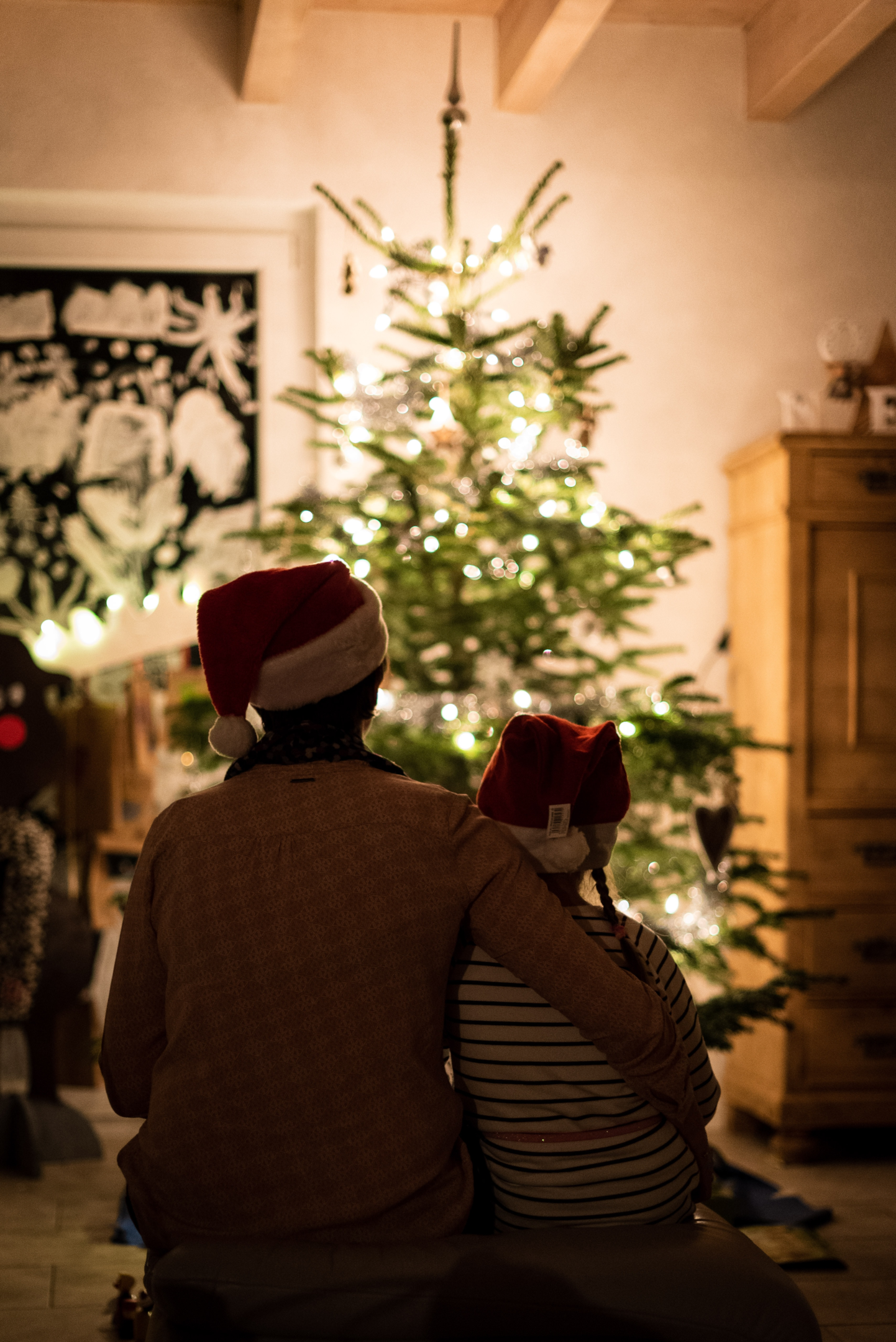
Here are a few ways to transform your own childhood memories into a foundation for a positive future:
Reflect and Document:
Take time to reflect on your own childhood experiences. Write them down in a journal or create a memory box. This act of documenting can be therapeutic, helping you acknowledge and understand your past.
Seek Professional Guidance:
If your childhood memories are particularly painful or intrusive, consider seeking support from a therapist or counselor. They can provide strategies to process these memories constructively and help you develop coping mechanisms.
Create Memories Through New Traditions:
Actively engage in creating new traditions or rituals that bring joy and contentment. New traditions can help overwrite painful memories with positive memories.
By actively engaging in these steps, you can view your memories as stepping stones to a future filled with hope and happiness rather than anchors holding you back.
I have attempted to undo my trauma little by little by following these tips. I haven’t always been successful, but my children have never had a Christmas where they wondered if I would show up.
Giving them childhood memories that are happy and stable has helped me heal. Hopefully, this article helps you learn to move past some of your traumatic childhood memories.

If you are looking for a little light and inspiration during your own holiday healing, check out our mindful adult coloring pages like “The Heart of the Holidays” and many more!



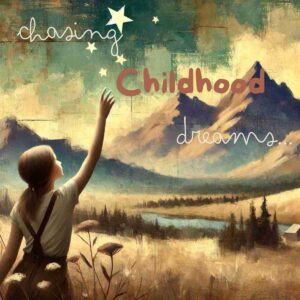
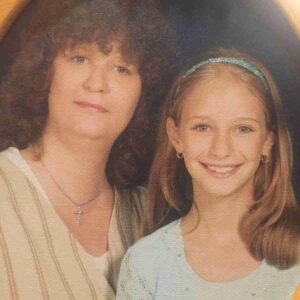
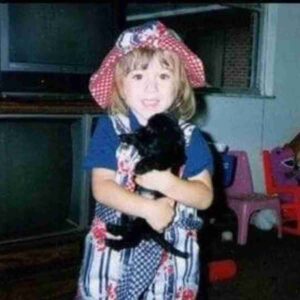



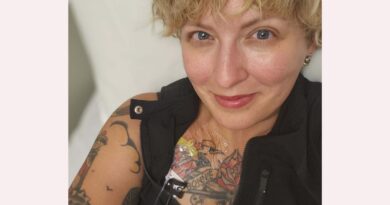
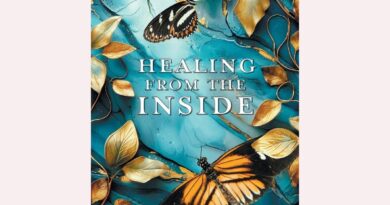
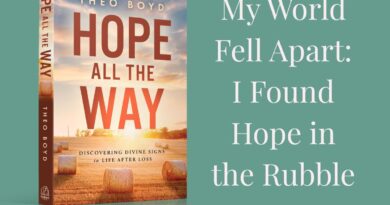

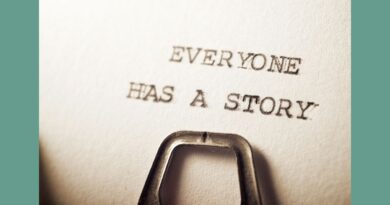










I am so sorry for all that you’ve been through. Meeting you at Stephanie‘s several years ago, I never would’ve known your struggles. So you definitely show the happy side when you’re with other people.
I hope you’re able to continue making happy memories. Hugs, Lana Hilling.
Thanks Lana! I have always been a believer in the idea that I would make it through to a better part of my life. I eventually do! So, I just try to grateful and choose to be happy.